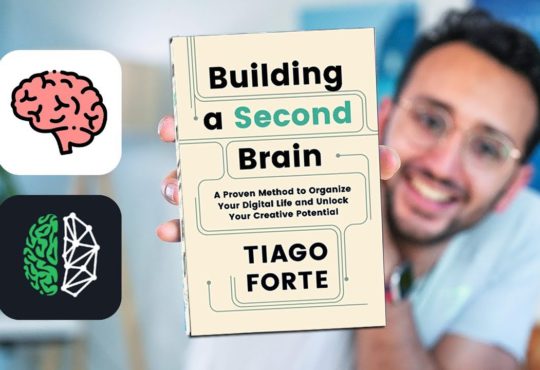The Bible’s Timeless Lessons on Minimalism and Wealth

<?xml encoding=”UTF-8″>
The Bible’s Timeless Lessons on Minimalism and Wealth
Ever think about how the Bible, this ancient book, has more bits about stuff, cash, and moolah than about praying or faith? Crazy, right? With over 2,300 verses on this, it’s obvious the Bible’s got a lot to say about managing our material world. Today, let’s chat about some minimalist nuggets from the Bible that, despite their age, still vibe well today. These insights have flipped my life upside down in the best ways, and maybe they’ll do the same for you. Also, you may read A Day in the Life of a Minimalist for more insights.
Let Go of Your Stuff
Man, this lesson was a tough pill for me to swallow. For ages, I clung to my stuff like a squirrel with nuts. We live in a buy-buy-buy world, right? Ads are everywhere, and suddenly, bam! You’re hooked on your clothes, your gadgets, and even your job. I used to find my identity in stuff. Feeling down? I’d hit the shops. But the Bible throws a curveball at us with Luke 12:15, saying, “Take care and be on your guard against all covetousness. For life ain’t about hoarding stuff.”
King Solomon, who was rolling in dough, said, “I denied myself nothing my eyes desired. I refused my heart no pleasure. Yet, looking back, it was all meaningless. I chased after the wind.” This taught me loads about minimalism. It’s not about having nothing but about making room for what truly counts. Many of our possessions weigh us down and add stress instead of joy. It’s like peeling an onion, shedding what’s unnecessary to find what truly matters underneath. Read also: How the Simple Life and Saving Big Bucks Flipped My World Upside Down

Get Ready, Get Set
Another gem from the Bible is being ready. This doesn’t mean having canned beans for a zombie apocalypse, but being smart with your resources. Look at Joseph’s story. He saved 20% during good times to prep for the famine. Or the parable of the talents, where the smart ones invested and doubled their funds.
Joseph’s tale is a masterclass in planning. He saved during fat years so Egypt wouldn’t starve during lean times. This is all about prepping for the unexpected curveballs life throws. Being ready helps us face life’s hurdles without feeling like we’re drowning. You may read: A Minimalist Approach to Personal Finance: How I Overcame My Debt for more insights.
Don’t Chase Riches
This one’s often twisted. In Mark 10:25, it says, “It’s easier for a camel to squeeze through a needle’s eye than for a rich dude to enter heaven.” The young rich guy in the story wasn’t told to sell his stuff just because. It was a heart thing. He was glued to his wealth. I’ve been there, thinking money brings joy. But stuff is fleeting; it doesn’t really matter.
Jesus’ teachings here show that wealth shouldn’t block spiritual growth. It’s not the coins that are bad, but getting too attached to them. When wealth becomes a god, it can steer us away from deeper, more meaningful connections. The Bible nudges us to use our resources wisely and to give generously, showing what we value by how we handle our finances.
Time’s Ticking
Don’t just coast through life on cruise control. A verse that hit me like a ton of bricks is, “Look carefully how you walk, not as the unwise, but as the wise, making the best use of the time because the days are evil.” It’s too easy to waste time online or binge-watching TV. But time’s precious, folks!
Time’s a treasure, yet we often fritter it away on silly stuff. The Bible whispers for us to live on purpose, focusing on what truly matters. This could mean more family time, personal growth, or helping others. By choosing how we spend our time, we live in sync with our core values and positively impact those around us.
Be a Smart Manager
The Bible chats a lot about being a good manager, not just of money but of time, too. With the average Joe raking in about $4 million over a lifetime, what do we have to show for it? Many are swimming in debt and stress. The Bible says, “Precious treasure and oil are in a wise man’s dwelling, but a foolish man devours it.” This means saving up and investing. A fool spends it all, always chasing short-term thrills instead of lasting contentment.

Being a good steward means handling our resources—money and time—wisely. It’s about planning, saving, giving, and investing with purpose. Stewardship sees us as caretakers of what we’ve been given, and we’re called to use these gifts to honor God and uplift others. This mindset nudges us to live within our means, avoid crazy debts, and focus on long-term stability over quick gratifications.
Wrapping Up
On this journey of frugal living and minimalism, I’ve learned that having more means being happy with less. If I can be satisfied with what I’ve got, happiness follows me everywhere. Letting go of the notion that stuff brings happiness is key. If you dug this chat, don’t forget to subscribe. I’d love to spin another series from the Bible. Let me know if you’re game for more!
In wrapping up, the Bible dishes out timeless wisdom on wealth and minimalism. Its teachings nudge us to live with purpose, cherish our relationships, and find joy in simplicity. By aligning our lives with these principles, we not only boost our personal well-being but also sprinkle positivity into the world around us. As we hustle through modern life, let’s tap into the Bible’s timeless nuggets to guide us toward a richer, more fulfilling life.














